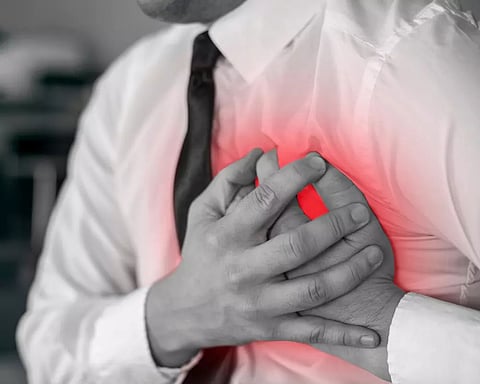

Heightened awareness of one’s own heartbeats, also known as palpitations, has recently been seen as a common trend. Though most of these episodes are related to job-related stress or anxiety and panic attacks, other causes should be excluded before naming these benign probabilities.
Stress and anxiety may lead to sympathetic activation, leading to symptoms. Most of these are appropriate or inappropriate sinus tachycardia and can arise spontaneously or when one goes off anti-anxiety medication for a few weeks. People who consume excess alcohol or caffeine can also experience these symptoms. Low haemoglobin or anaemia and thyrotoxicosis (excess thyroid hormones) are other common causes and need to be ruled out by blood investigations. Rarely, cardiac conditions can cause palpitations which differ clinically when compared to psychological conditions. This condition includes arrhythmias or structural heart diseases mainly involving the valves. Symptoms may include fast heart rates, feeling of giddiness or loss of consciousness, and neck pulsations.
It is important to known if the excess heart beats are physiological or pathological, as treatment and prognosis differ. If the symptoms are infrequent, sometimes just monitoring using smart watches or devices like an oximeter may help before consulting a cardiologist. If someone has frequent palpitations which is not diagnosed on electrocardiogram, holter monitoring for 72 hours or even upto seven days may be a good way to identify the rate and rhythm issues. Very rarely are these arrhythmias are picked up on ECG in the case of patients with ongoing symptoms. ECG is an important test to diagnose any structural heart disease leading to palpitations.
Treatment of palpitations depends on the diagnosis. Stress, anxiety and panic attacks causing palpitations can be managed with counselling or sometimes short-term medication. Cardiac arrhythmias once diagnosed can be managed with medication or if needed, by radiofrequency ablation (depending on type). Correction of anaemia or underlying medical diseases may sometimes help.
The writer is a consultant - cardiology, Manipal Hospital, Sarjapur Road